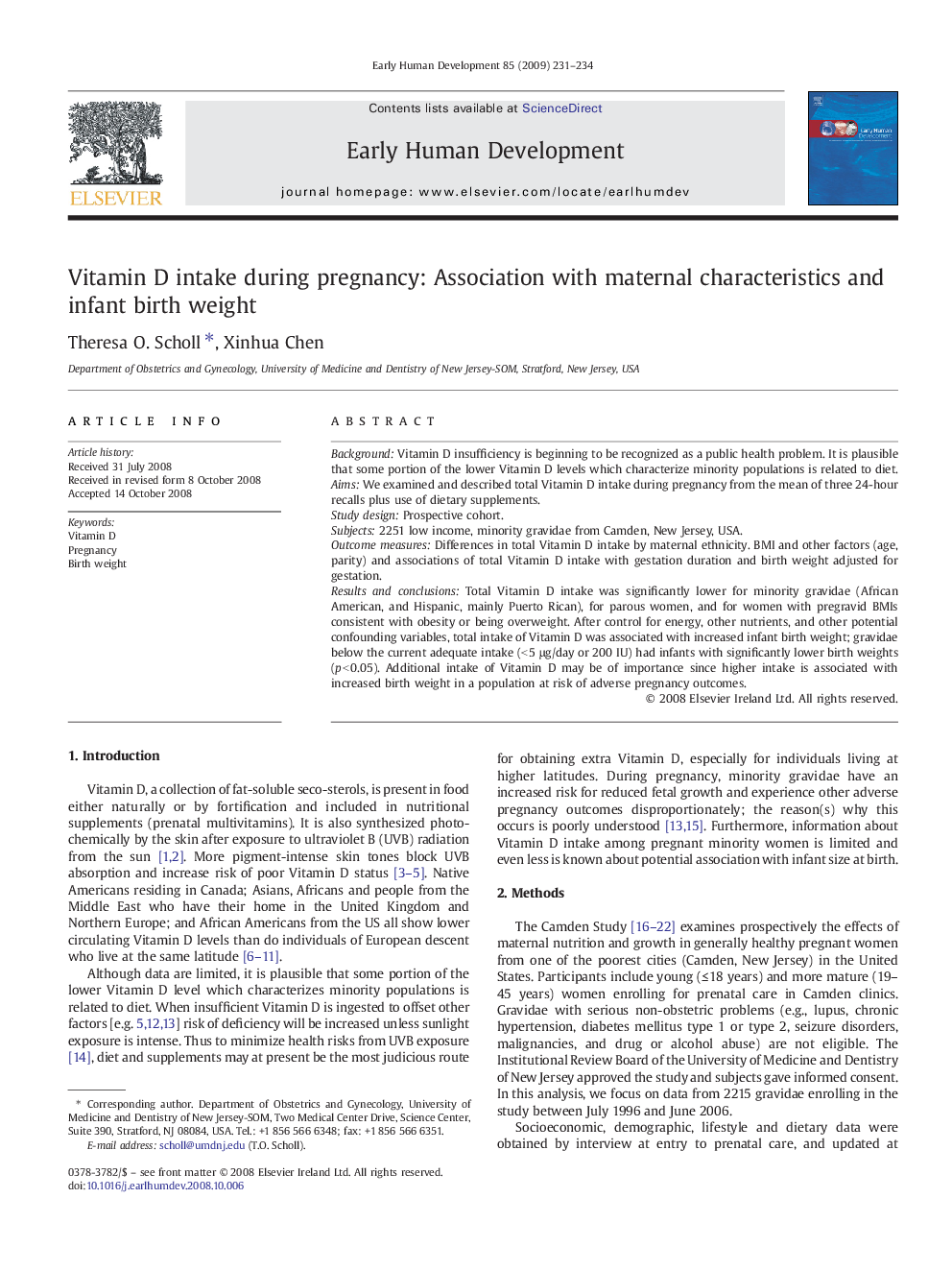| Article ID | Journal | Published Year | Pages | File Type |
|---|---|---|---|---|
| 3917747 | Early Human Development | 2009 | 4 Pages |
BackgroundVitamin D insufficiency is beginning to be recognized as a public health problem. It is plausible that some portion of the lower Vitamin D levels which characterize minority populations is related to diet.AimsWe examined and described total Vitamin D intake during pregnancy from the mean of three 24-hour recalls plus use of dietary supplements.Study designProspective cohort.Subjects2251 low income, minority gravidae from Camden, New Jersey, USA.Outcome measuresDifferences in total Vitamin D intake by maternal ethnicity. BMI and other factors (age, parity) and associations of total Vitamin D intake with gestation duration and birth weight adjusted for gestation.Results and conclusionsTotal Vitamin D intake was significantly lower for minority gravidae (African American, and Hispanic, mainly Puerto Rican), for parous women, and for women with pregravid BMIs consistent with obesity or being overweight. After control for energy, other nutrients, and other potential confounding variables, total intake of Vitamin D was associated with increased infant birth weight; gravidae below the current adequate intake (< 5 μg/day or 200 IU) had infants with significantly lower birth weights (p < 0.05). Additional intake of Vitamin D may be of importance since higher intake is associated with increased birth weight in a population at risk of adverse pregnancy outcomes.
